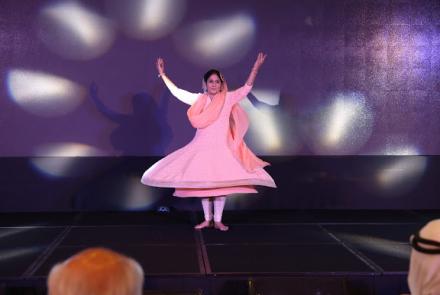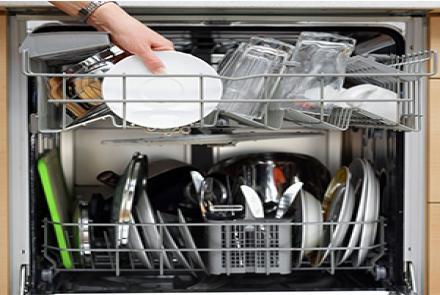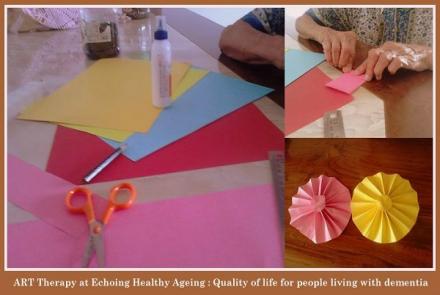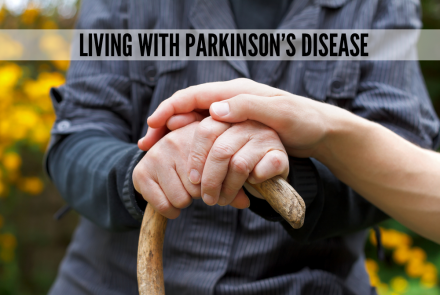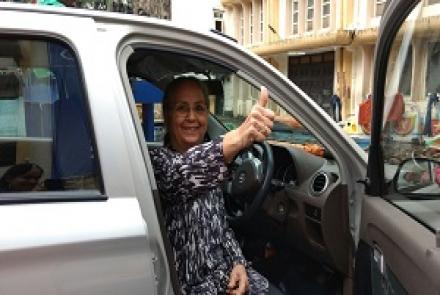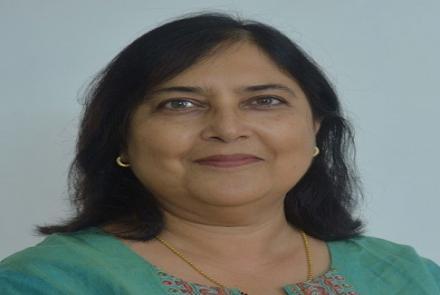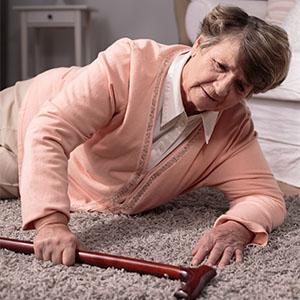
Falls are probably the number one cause of injuries in seniors resulting in high medical and rehabilitative costs. Porrselvi A.P. a cognitive and psychosocial interventions specialist, offers valuable tips and suggestions for preventing falls at home, from installing handrails and anti-skid mats to decluttering the house and wearing sturdy footwear.
Falls can lead to avoidable hospital admissions and the associated complications for elderly with a good health status as well as those older people with disease conditions which affect their balance and mobility. Falls come with high medical and rehabilitative costs for these seniors and thus can affect their quality of life severely. Some seniors are very anxious about falling and the pain associated with it that they might give up their interests and refrain themselves from doing their day to day activities. These can cause a decreased quality of life and can sometimes lead to resentment, negative attitudes towards aging, helplessness and depression.
Read this in Hindi: घर में बुजुर्गों के गिरने से बचाव के लिए बदलाव करें
Common suggestions for prevention of falls include:
- Plan ahead and never try to rush or hurry anywhere. It is okay if you are delayed or if you take more time to complete a work. Remember that safety is much more important than hurrying and prevention is definitely better than surgery, medicines and physiotherapy.
- Keeping your house organized and clutter free. Wires and carpets must be either firmly stuck to the walls and the ground with cellophane tape or should not be out in the open in the living area of the elders.
- Bathrooms must have railings, anti-skid tiles, a railing near the commode, anti-slip door mats. It might help to have designated wet and dry area in the bathroom with the wet area dried quickly after every bath by installing a fan. The toilet seats need to be raised so that the seniors don’t have to alter their centre of gravity too much while sitting and getting up. It is also advisable to have a sturdy chair in the shower area.
Using hand showers is safer than a bucket bath. The other advantage of sitting while having a bath is the convenience with which the seniors can reach down or pull their leg up to clean their feet or to use a loofah to clean their back.
Be wary of spills and clean them quickly. If the senior has incontinence issues, make sure the dribbles are cleaned quickly. - Every area of the house used by the senior should be well-lit. At night a bright enough night lamp should be always switched on. It is best to leave the bathroom lights on through the night with the bathroom door slightly ajar so that the seniors can safely find their way around at night if they need to use the restroom.
- The most common places at home where falls occur are in the bathroom, near the bed in the bedroom and near the dining table/ living area when they get up or try sitting on a chair/couch. So it is important to use sturdy furniture and railings wherever necessary. The furniture should not be too soft or have springs that make the cushions sink in with the weight of the senior on them.
- Indoor and outdoor footwear need to be of the sandal, shoes or slip-on type that goes around the back of the feet at ankle level. Usual slipper or flip flop style of footwear can trip the person leading to a fall.
Related Reading: Adaptations for Elder Friendly Homes
Seniors with balance difficulties on posture change
It is also important to note if the senior has balance difficulties or light headedness that accompany any change in posture of the senior - like sitting to standing, lying down to standing, gargling with their head tilted up, standing up after picking something up from the floor, standing up after using the commode in the toilet etc. If this happens, it is important to immediately consult your general physician. Such balance difficulties and falls maybe due to some medical condition that causes a head rush like symptom in the senior. Such postural hypotension can be caused by some systemic disorders or prescription medicines and can lead to multiple falls and cause serious injuries. It has to be given immediate medical and rehabilitative attention. The senior has to be educated about their condition and should be made to understand the consequences of it.
They need to remain sufficiently hydrated at all times, avoid large meals, avoid hot baths, avoid alcohol intake. They can be taught physical manoeuvres like crossing the legs while standing, squatting before standing up from the floor, sitting after lying down before standing up, moving head and torso forwards before getting up from seated position, counting to 20 before changing postures etc. Physiotherapists can teach them balance exercises and fall prevention exercises. A patient education session can benefit the senior and their caregiver greatly to avoid any complications arising out of this easily manageable condition.
People with Dementia or Parkinson's
If the senior has any chronic medical condition that makes him or her prone to falls like Parkinson’s disease and dementia, then the safest thing to do is to fix foam linings on sharp edges of walls and furniture. Sometimes in these conditions the seniors will not be able to differentiate contours and depth. In these scenarios, it is best to avoid any stairs or uneven flooring. If in case there are any stairs or uneven flooring, make sure you paint that particular area of the floor in a different colour that is obvious to spot or stick some brightly coloured tape on the floor. If the senior has dementia, they might not be able to internalize, remember and follow the instructions to prevent falls, in these cases a rehabilitation therapist can help them build it into their routine using cognitive and behavioural strategies which can help reduce the risk for falls.
If the senior has had loose stools or vomiting spells, it is best to be aware that the fluid and electrolyte levels maybe imbalanced and may lead to dizziness and falls. Necessary precautions need to be taken at times like these.
Preventing Falls Outdoors
Most articles written on falls and most advice that is given on preventing falls focus on what to do at home but elders are at risk to lose balance and fall outdoors just as much as they do indoors. If you have a garden or go to a park it is important to stick to the paved garden walk and not get down on the ground or grass as the ground maybe uneven. It is always better to take the lift as the escalators are not safe for elders. They may not be able to react as quickly as required and the moving escalators only cause more sense of imbalance increasing their anxiety even if their carer is close at hand. It is better not to go out around noon as this can increase fatigue. Proper rest and spacing out the physical activity times is necessary.
Use of quad canes or walkers
It is important to encourage them to use quad canes or walkers as required in order to make sure they remain mobile for as long as possible. Commonly in India, elders tend to use the people in their family as their support to avoid falls. This may increase dependency on caregivers, giving rise to caregiver stress. When the spouse who is also a senior or a young grandchild becomes the “cane” it only increases the risk of fall for both individuals. If the elder is reluctant to use the cane, it will be a good decision to approach a therapist who can educate and counsel the senior to get past their stigma against using canes.
Public and Private Transport
Walking on the roads needs extra care in India. The key is to always carry a quad cane for extra support and stick to the pavements whenever they are available and are in good condition. Public transport poses a challenge of its own. It may be advisable to use private transport as much as possible or ask for help at the bus stop/train station to help him or her get into the bus or train. If you need to go to restaurants or any functions, always call ahead and check if the restaurant/venue is on the ground floor or else has a lift and make plans.
Future proofing
It is also important to teach and urge the younger generations to always empathize and help a senior. Make sure you plan an event in a disabled/elderly friendly venue if you plan on inviting older people. This might encourage awareness and bring about a change in our policies in the future thereby making our society more inclusive and friendly for persons with disabilities.



